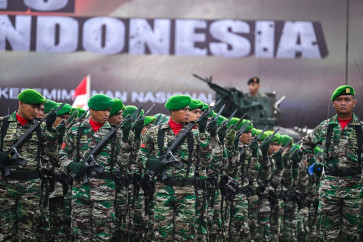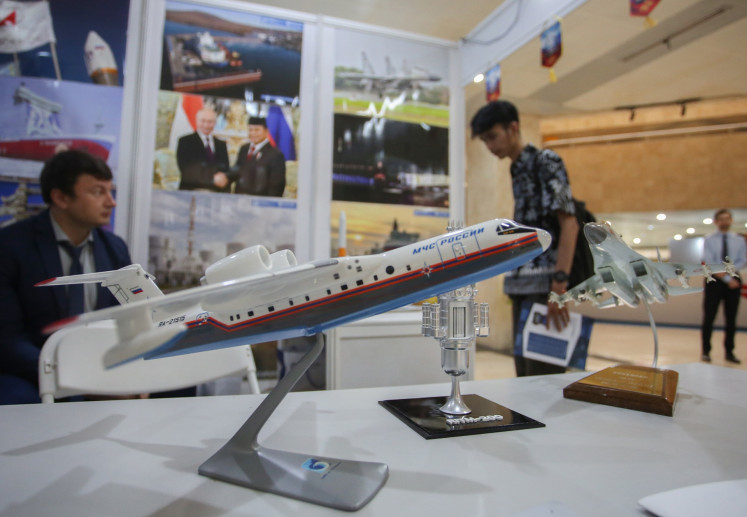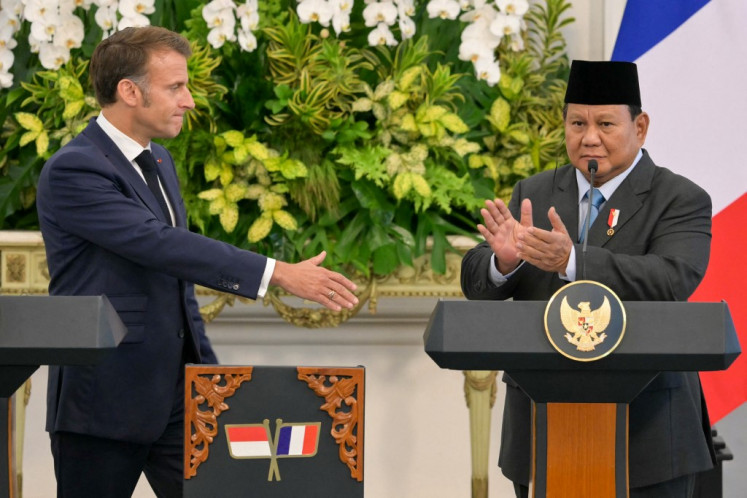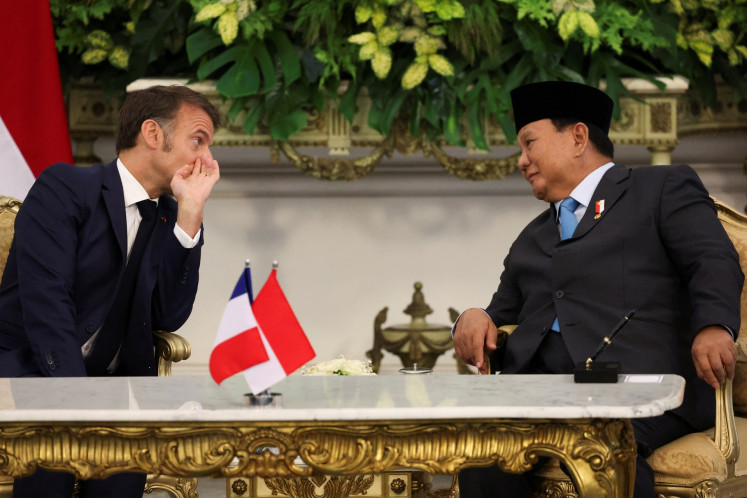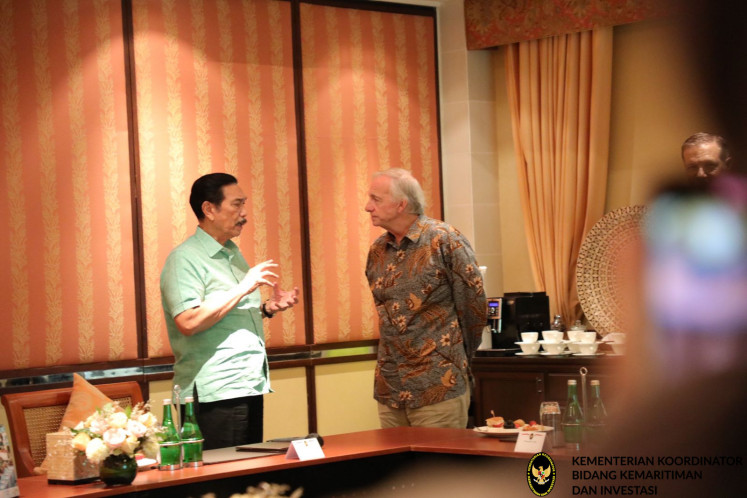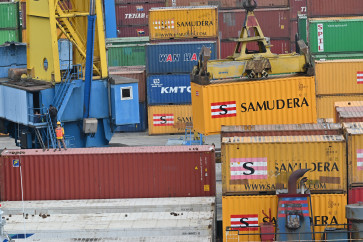Proactive approach to trade talks in a shifting global economy
The global trade landscape is witnessing significant disruptions following Trump's tariffs, with countries navigating the fallout and rearranging trade relations in a post-American world trade order.
Change text size
Gift Premium Articles
to Anyone
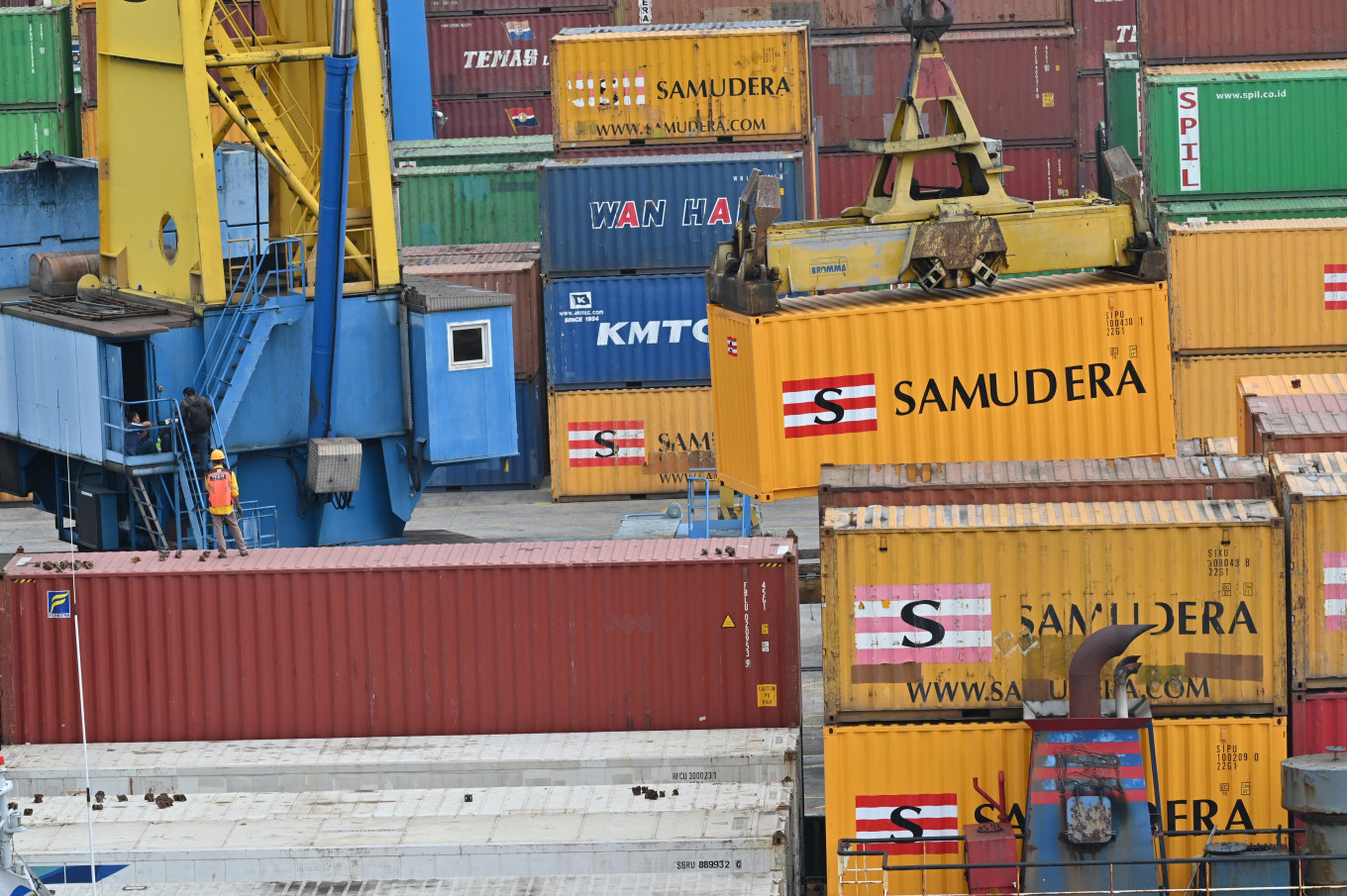 Global market: A worker supervises loading and unloading services on March 28, 2023, at the Jakarta International Container Terminal in Tanjung Priok, North Jakarta. (AFP/Adek Berry )
Global market: A worker supervises loading and unloading services on March 28, 2023, at the Jakarta International Container Terminal in Tanjung Priok, North Jakarta. (AFP/Adek Berry )
U
nited States President Donald Trump's aggressive tariff offensive, initiated on April 2, has sent shockwaves through the global trade system. Rooted in the Grievance Doctrine, which seeks retribution against foreign nations deemed unfair to the US middle class, these tariffs have ushered in a period of uncertainty and instability.
However, this approach lacks a sound economic rationale and risks upsetting the multilateral trade system crucial for global prosperity post-World War II. The Grievance Doctrine underscores a shift toward protectionism in US trade policy, driven by perceived betrayals and a need for revenge, rather than a comprehensive strategy to address economic challenges.
Consequently, the global trade landscape is witnessing significant disruptions following Trump's tariffs, with countries navigating the fallout and rearranging trade relations in a post-American world trade order. The actions of nations in response to the disruptions from these tariffs have led to a reshaping of global trade dynamics, revealing new political economic pressures at play.
Trump's tariff-driven approach also risks undermining long-term investments, disrupting supply chains and straining relationships with trading partners, including Indonesia. The erratic decision-making and lack of a coherent strategy have put the US on a path away from a rules-based global trade system toward protectionism, with repercussions felt globally. To address fundamental economic challenges and promote sustainable manufacturing growth, a holistic industrial policy encompassing workforce training, infrastructure investments and strategic long-term planning is essential.
Indonesia finds itself at a critical juncture in the shifting global trade landscape following the aftermath of Trump's tariff offensive and the resultant recalibration in international trade dynamics.
As the country adapts to a post-American world trade order fraught with new political and economic pressures, it faces substantial challenges outlined in the US Trade Representatives (USTR) Report 2025, which underscore areas of improvement across various trade-related aspects such as tariffs, non-tariff barriers, technical barriers, intellectual property protection and more.
The recent developments in the US-China Trade War, featuring a temporary 90-day "ceasefire" agreement, add another layer of complexity to Indonesia's trade strategies. The conflict, initiated by Trump's tariffs on steel and aluminum in March 2018, triggered retaliatory actions from China, leading to escalating tensions and subsequent negotiations. Despite signing a Phase One Deal aimed at reducing tariffs and boosting US exports to China, disagreements over compliance have reignited friction, leaving Indonesia in a delicate balancing act amid threats of reciprocal tariffs and sovereignty concerns.



